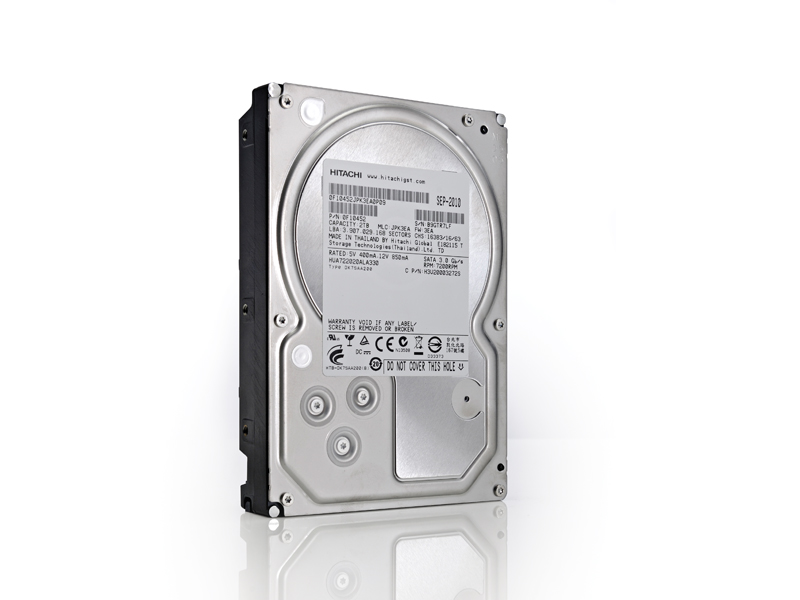TechRadar Verdict
Pros
- +
7,200 RPM spindle
- +
Good value
- +
Decent performance
Cons
- -
Not as fast as some competition
Why you can trust TechRadar
Hitachi was notably absent when the first 2TB drives were introduced, but it has a real trick up its sleeve in the in the shape of the Deskstar 7K2000. It’s the first 2TB drive to ship with a 7,200 RPM spindle speed, which puts it firmly in the camp of high performance mechanical drives.
Unfortunately, the rest of the disk design doesn’t quite live up to the promise of the fast spindle speed, and in some ways you could say that Hitachi was playing it safe by using fi ve 400GB platters and only a 32MB cache.
Its answer would probably be that it opted for stability and reliability rather than pushing performance to the limit. Why the fuss about how many platters (discs) the drive uses?
It’s all about areal density – that’s how much data can be stored on a given amount of platter real estate. The greater a platter’s areal density, the fewer platters are needed to achieve a given capacity which brings not only cost savings in terms of manufacturing but also reduces the noise levels and heat levels inside the drive itself.
The increase in density means that the data is packed in more tightly, meaning that the read/write heads have less distance to travel from one data block to the next, which is why the Deskstar 7K2000 doesn’t fair so well in the sequential read/write tests as some.
Even so, it still offers a good combination of capacity, performance and price. When all is said and done it’s still a 2TB, 7,200 RPM drive for under a hundred quid.
However, the low-density design means it underperforms against similar devices, such as the Caviar Black, without much of a price difference to compensate.
Follow TechRadar Reviews on Twitter: http://twitter.com/techradarreview
